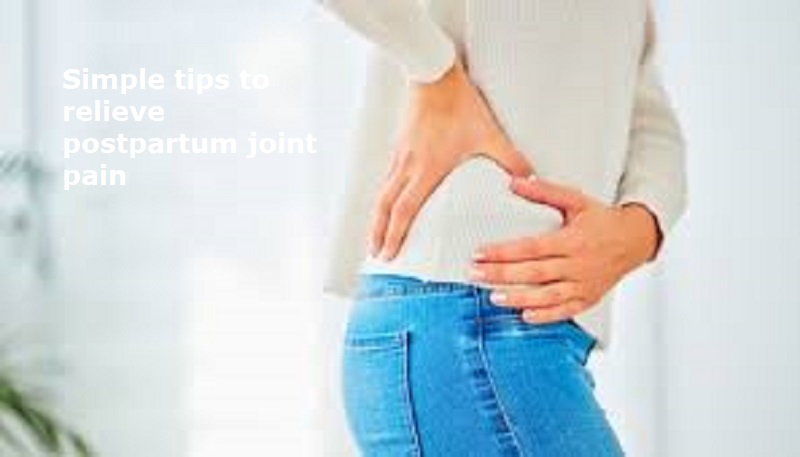
The phase immediately following childbirth, referred to as the postpartum period, typically spans approximately two months. It is not uncommon for women to encounter joint discomfort in various parts of their bodies during this phase. Such discomfort can manifest in any joint, such as the lower back, knees, hips, and hands, and may be accompanied by stiffness, swelling, and redness. It is imperative to recognize that although these symptoms may impart a sudden feeling of aging, they frequently stem from hormonal shifts and the physical stress of childbirth.
Etiologies of Postpartum Joint Discomfort
One of the chief reasons mothers undergo joint pain subsequent to childbirth is the weight increase experienced during pregnancy. As the body adapts to bearing the growing baby, which gains weight progressively, discomfort may ensue during the process of reverting to the pre-pregnancy state. Additionally, mothers with prior joint or tailbone injuries may endure more pronounced postpartum joint pain. Elevated fluid retention during pregnancy can further contribute to finger joint discomfort, while carrying the baby may exert pressure on the knees.
New mothers must prioritize their physical well-being to ensure optimal care for their infants. In a discussion with WION, Dr. Ashutosh Jha, Consultant Orthopedic at Manipal Hospital in Ghaziabad, imparted three crucial suggestions for sustaining bone health postpartum. Here are the recommendations:
1. Sustain a Balanced Diet: Ingesting foods abundant in calcium aids in preserving bone strength and health. Certain studies propose that vitamin K fosters bone density and should be included in the dietary regimen. It is advisable to refrain from consuming caffeine during this period.
Also Read: Everything you need to know about paruresis
2. Engage in Regular Exercise: Participating in light physical activity contributes to maintaining bodily vigor. Yoga, in particular, promotes both physical and mental wellness. Nonetheless, it is prudent to seek guidance from a healthcare professional prior to initiating any exercise regimen.
3. Seek Guidance from a Healthcare Professional: If a woman undergoes severe joint discomfort following childbirth, she should seek counsel from a healthcare practitioner. This discomfort may signify an underlying condition necessitating further intervention. The healthcare provider may conduct assessments to evaluate bone density and prescribe suitable therapy.
By adhering to these measures, new mothers can foster bone health and overall wellness during the postpartum period.

Post Your Comments